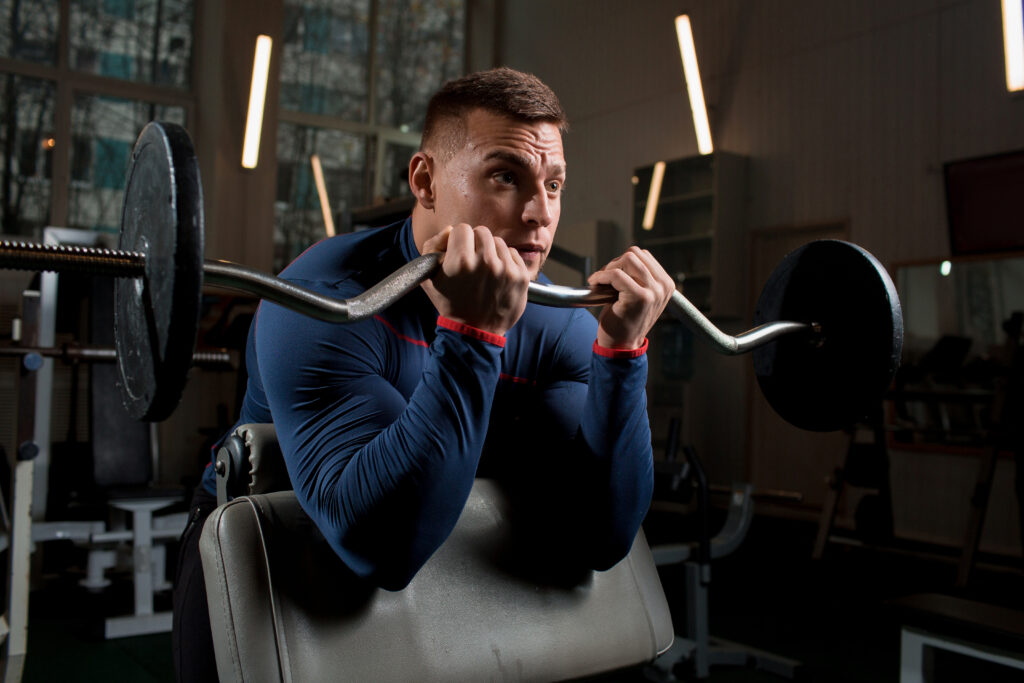Caffeine is a staple in many men’s pre-workout routines, valued for its ability to increase energy, sharpen focus, and boost gym performance. But for men who are trying to build muscle and optimize testosterone levels, an important question emerges—can too much caffeine actually hurt testosterone production?
Let’s explore what the research says about caffeine’s impact on male hormones and muscle development.
The Performance Benefits of Caffeine
Caffeine is one of the most researched and effective ergogenic (performance-enhancing) aids. The International Society of Sports Nutrition (ISSN) recognizes caffeine for its ability to improve endurance, strength, and high-intensity workout performance when consumed in moderate doses of 3–6 mg per kilogram of body weight (Grgic et al., 2019).
For a 180-pound (82 kg) male, that’s approximately 250–500 mg of caffeine, or about 2–4 cups of coffee. These levels are generally safe for most healthy adults.
Caffeine can increase adrenaline, improve focus, and reduce perceived effort during resistance training—giving lifters a mental and physical edge. It also helps mobilize fatty acids, potentially increasing fat oxidation during exercise.
Does Caffeine Affect Testosterone?
The link between caffeine and testosterone is nuanced. Some short-term studies have shown that acute caffeine ingestion may increase testosterone levels temporarily following exercise. For example, a study published in Nutrition Journal found that male athletes who consumed caffeine prior to resistance training experienced elevated testosterone and cortisol immediately post-workout (Beaven et al., 2008).
However, the story changes with chronic or excessive intake. Research published in Human Reproduction (Nassan et al., 2017) and Journal of Applied Physiology indicates that high habitual caffeine intake may negatively affect testosterone or sperm quality, especially in sedentary men.
Excessive intake—more than 500–600 mg/day—can overstimulate the adrenal glands, increasing cortisol (a stress hormone) and possibly suppressing testosterone over time. Chronically high cortisol levels are known to negatively impact muscle growth, recovery, and hormone balance.
What’s the Ideal Amount for Muscle Building?
If you’re strength training and aiming to optimize testosterone and performance:
- Stick to 3–6 mg/kg body weight pre-workout (about 200–400 mg for most men).
- Avoid caffeine intake late in the day—it can disrupt sleep, which is vital for testosterone production and muscle recovery.
- Don’t rely on multiple energy drinks or high-dose caffeine supplements daily.
A 2021 review in Nutrients emphasized that caffeine can support resistance training when used wisely, but excessive intake or dependency can counteract progress (Guest et al., 2021).
The Bottom Line
Caffeine is a powerful tool in a lifter’s arsenal. In moderate doses, it enhances workout performance, mental alertness, and even acutely supports testosterone. But too much caffeine—especially over 500 mg daily—can increase cortisol and possibly reduce testosterone over time, especially if sleep and recovery are compromised.
For men trying to build muscle and optimize hormone health, moderation is key. Enjoy your morning coffee or pre-workout boost—but don’t overdo it.
Jefit: Your Ultimate Strength Training Companion
If you’re committed to building muscle, gaining strength, and tracking your progress effectively in 2025, the Jefit strength training app is the essential tool to help you crush your fitness goals. With over 20 million downloads and 12+ million active users, Jefit ranks among the best strength training apps available today. Named the Best Fitness App of 2024 and featured in Men’s Health, PC Magazine, and USA TODAY, Jefit combines expert-built workout programs, advanced gym performance tracking, and a supportive community to help you stay accountable and motivated. Whether you’re looking to follow a scientifically-backed muscle-building plan, monitor your lifting progress, or optimize your training intensity, Jefit gives you everything you need — all in one place.
Scientific References
- Beaven, C. M., Hopkins, W. G., Hansen, K. T., et al. (2008). Dose effect of caffeine on testosterone and cortisol responses to resistance exercise. Nutrition Journal, 7(1), 25. https://doi.org/10.1186/1475-2891-7-25
- Grgic, J., Trexler, E. T., Lazinica, B., & Pedisic, Z. (2019). Effects of caffeine intake on muscle strength and power: a systematic review and meta-analysis. Journal of the International Society of Sports Nutrition, 15(1), 11. https://doi.org/10.1186/s12970-018-0216-0
- Nassan, F. L., Chavarro, J. E., & Tanrikut, C. (2017). Diet and men’s fertility: does diet affect sperm quality? Fertility and Sterility, 107(4), 628-636. https://doi.org/10.1016/j.fertnstert.2017.01.002
- Guest, N. S., VanDusseldorp, T. A., Nelson, M. T., et al. (2021). International Society of Sports Nutrition position stand: caffeine and exercise performance. Nutrients, 13(2), 370. https://doi.org/10.3390/nu13020370
- Velocity-Based Strength Training: Lift Smarter, Not Heavier - January 28, 2026
- Optimal Recovery Time for Strength Training - January 21, 2026
- Train Smarter With MED: Minimum Effective Dose Strength - January 14, 2026
